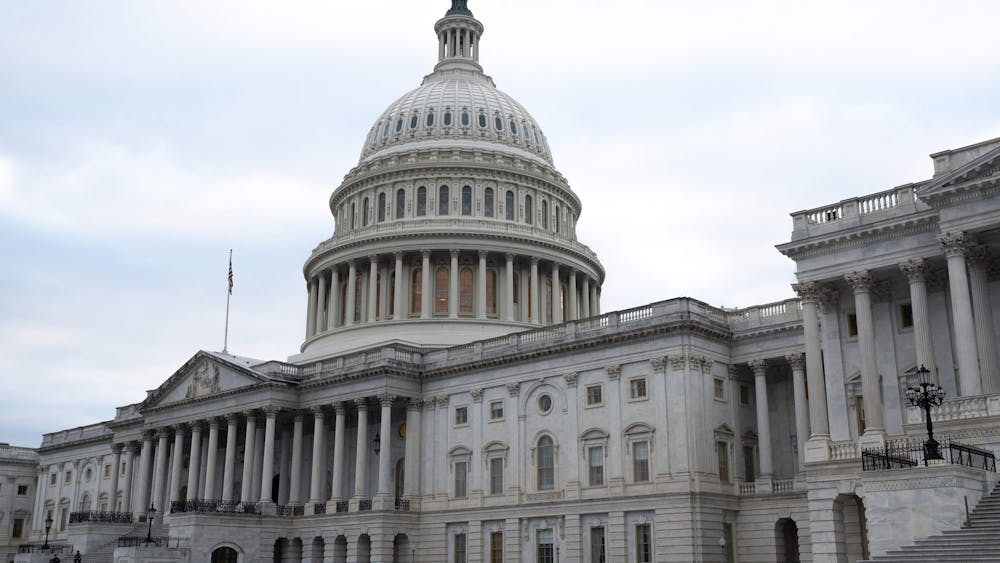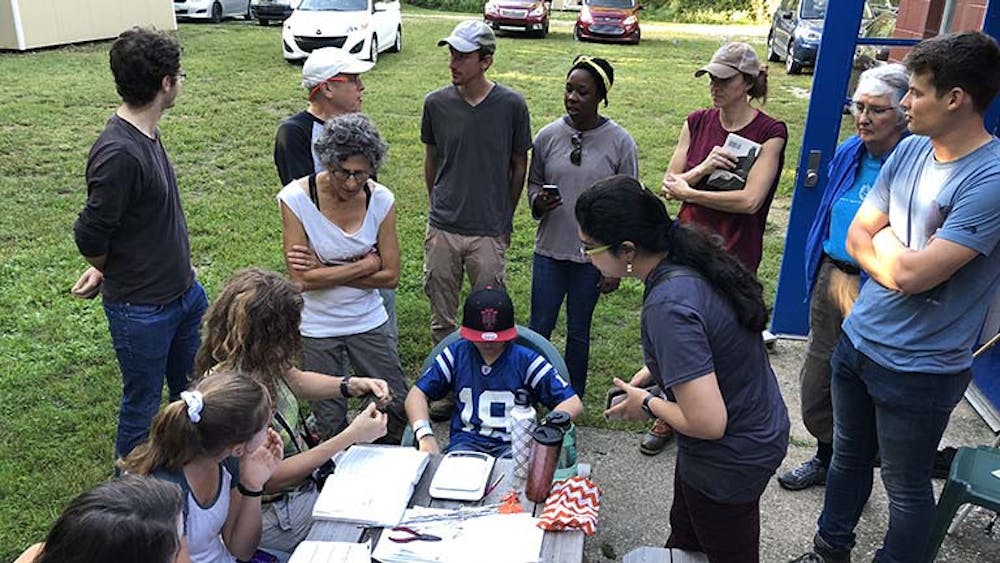A lawsuit claiming Indiana state and city laws aimed at protecting LGBTQ people from discrimination violate the First Amendment is set to be decided in August by a Hamilton County judge.
In 2015, Indiana passed — and quickly amended — the Religious Freedom Restoration Act to increase protections for the free exercise of religion. Amidst national criticism that the law would allow discrimination against the LGBTQ community, a second bill was passed a week later that prohibits businesses and individuals from refusing goods or services to people based on sexual orientation, gender identity or other reasons.
Three nonprofit organizations that advocate for marriage between men and women filed a lawsuit in 2015 claiming the RFRA amendment, as well as human rights ordinances in four Indiana cities, violated the First Amendment right to free exercise of religion.
Jim Bopp Jr., one of the attorneys representing the Indiana Family Institute, Indiana Family Action and the American Family Association of Indiana, said these laws are discriminating against people who believe marriage should be between a man and a woman.
“The state law now discriminates against people of faith with traditional views on marriage by exempting them from legal protections,” Bopp said. “We think that violates the First Amendment which requires the government to treat all religious viewpoints equally.”
The lawsuit names Bloomington, Indianapolis, Carmel and Columbus, Indiana, and claims all four cities have human rights ordinances that explicitly protect people from discrimination on the basis of sexual orientation or gender identity.
“The City of Bloomington has a very proud, long history of protecting all individuals within our city limits,” said Larry Allen, an attorney for the City of Bloomington.
Bopp said the city ordinances are requiring people to participate in same-sex marriages, by officiating the wedding ceremony or baking a wedding cake for example, even if they oppose same-sex marriage because of their religious beliefs.
Bopp said he doesn’t think people seeking same-sex marriages would be harmed by changes to these laws because there are people who can participate in those weddings without violating their religious beliefs.
Shortly after RFRA was amended, the American Civil Liberties Union of Indiana released a statement applauding the changes but encouraging more protections for the LGBTQ community.
“Religious freedom is one of our founding principles as a nation, and no one would argue that it should be limited,” the organization said in the statement. “That does not mean, however, that it should be used as a weapon against others.”
The organizations filing the suit also claim these laws hurt their ability to advocate for their religious views by holding conferences and events, Bopp said. He said with these laws, the organizations would be required to let people in favor of same-sex marriage speak at a conference, for example.
“The question now is, are we going to have a society in which everyone can live or are we going to have government-imposed orthodoxy,” Bopp said.






